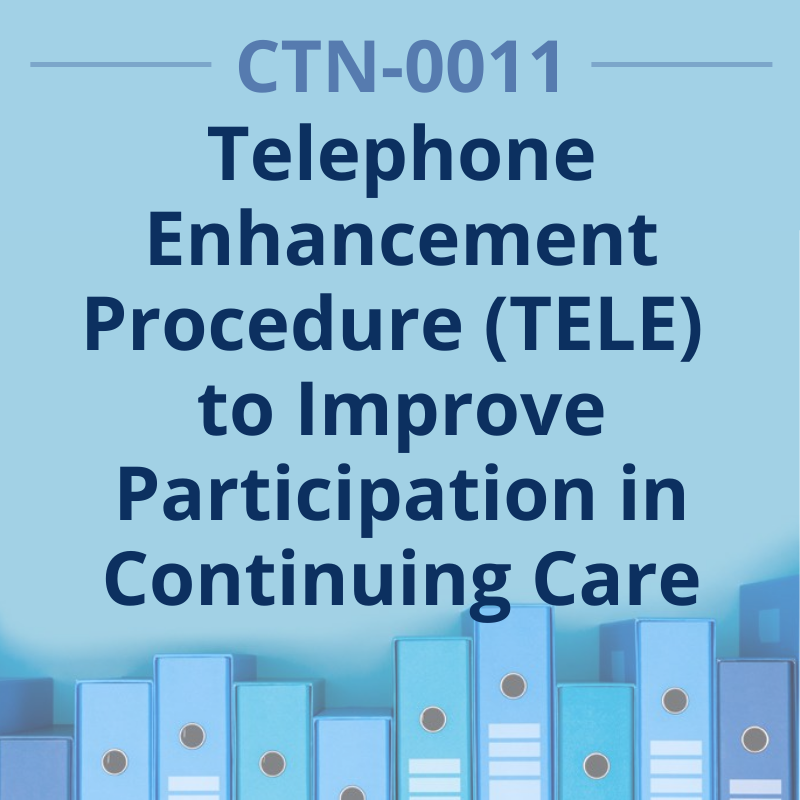CTN-0011: A Feasibility Study of a Telephone Enhancement Procedure (TELE) to Improve Participation in Continuing Care Activities

Robert L. Hubbard, PhD, MBA
Lead Investigator
Institute for Community-Based Research
Department of Psychiatry and Behavioral Sciences
Duke University Medical Center
hubbard@ndri-nc.org
Relapse rates are frequently high during the first few months after substance abuse treatment, often reversing many of the positive results of treatment. Virtually all treatment programs strongly recommend that participants get involved in “aftercare” or “continuing care” activities after they are discharged. This study examined the feasibility and potential efficacy of phone calls to patients after discharge from short-term inpatient and residential substance abuse treatment programs to encourage compliance with continuing care plans.
Primary Findings
While no difference was found between groups in self-reported attendance at one or more outpatient counseling sessions after discharge, participants receiving calls had a greater likelihood of documented attendance (48%) than those not called (37%); however, these results were not statistically significant. While the continuing care phone calls were feasible, the lack of clear evidence of efficacy suggests the need for further investigation of the role of telephone intervention to encourage compliance and improve long-term outcomes.

Primary Outcomes Article: Hubbard R, et al. Telephone enhancement of long-term engagement (TELE) in continuing care for substance abuse treatment: A NIDA Clinical Trials Network (CTN) study. American Journal on Addictions 2007;16(6):495-502.
Related Resources
- CTN-0011 Study Protocol
- Publications in the Library about CTN-0011
- Study data from NIDA Data Share
- ClinicalTrials.gov (NCT00067171)
- NIDA protocol page
Node Involvement
Lead Node(s):
All Participating Nodes: